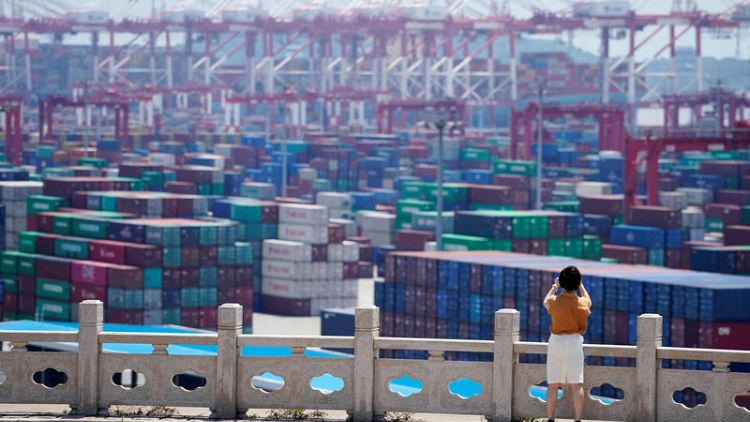By Cate Cadell
BEIJING (Reuters) - Chinese and U.S. trade negotiating teams are maintaining effective communication, China's Foreign Ministry said on Friday, less than 48 hours before U.S. tariffs kick in on an additional $125 billion (102 billion pounds) in Chinese goods.
The tit-for-tat tariff war now involves hundreds of billions of dollars of each country's goods and threatens global economic growth. Uncertainty about when or how it could end has roiled markets and complicated corporations' long-term investment plans.
The United States will begin collecting a 15% tariff on an estimated $125 billion of Chinese goods at 12:01 a.m. EDT (0401 GMT) on Sunday, including smartwatches, flat panel televisions and footwear. U.S. tariffs have been imposed on $250 billion of Chinese products so far since the trade war began in 2018.
On Friday, U.S. President Donald Trump denied the tariffs were affecting the U.S. economy. "We don't have a Tariff problem (we are reigning in bad and/or unfair players), we have a Fed problem. They don't have a clue!" he wrote in a Twitter post.
Trump has criticized the U.S. Federal Reserve and its leadership for not lowering interest rates further to stimulate the economy.
Trump said General Motors Co <GM.N> should begin moving its operations in China, where it started joint ventures in 1997, back to the United States.
"General Motors, which was once the Giant of Detroit, is now one of the smallest auto manufacturers there. They moved major plants to China, BEFORE I CAME INTO OFFICE," Trump tweeted. "This was done despite the saving help given them by the USA. Now they should start moving back to America again?"
Bilateral trade talks could also be complicated by Beijing's response to widespread protests in Hong Kong. Trump tied the two together Aug. 14, saying he believed Chinese President Xi Jinping wanted a trade deal, but that Xi should "quickly and humanely solve the Hong Kong problem."
On Friday, Hong Kong police arrested several pro-democracy activists ahead of a mass demonstration planned for this weekend. Earlier this summer, Beijing rebuffed a Hong Kong government proposal to appease protesters.
(Reporting by Cate Cadell; Writing by Ben Blanchard and Heather Timmons; Editing by Michael Perry and Richard Chang)



